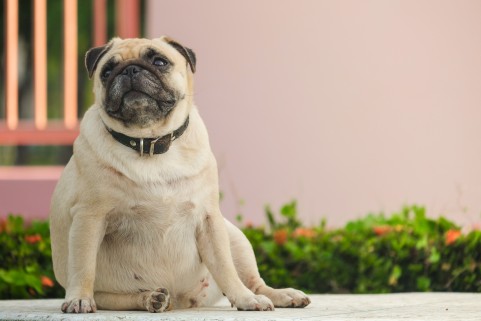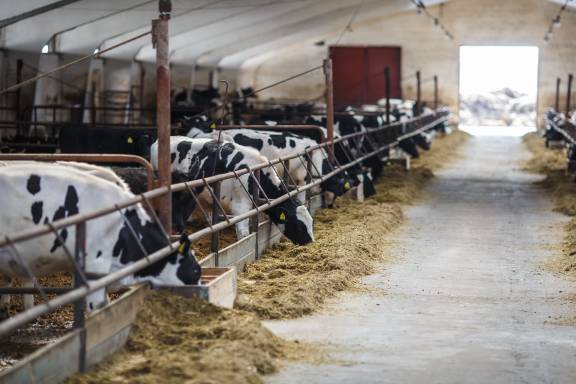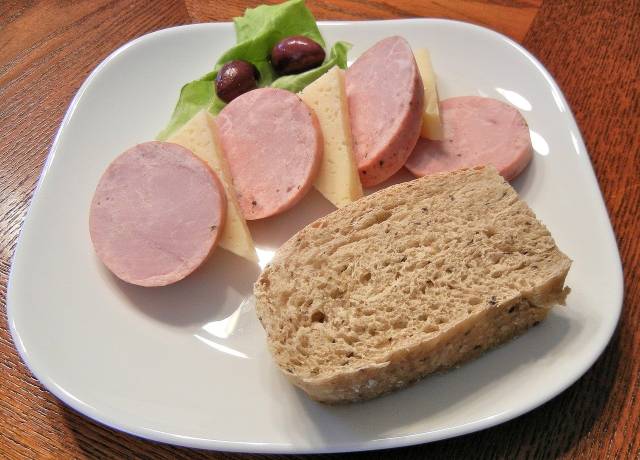Connect with a verified veterinarian in minutes. Licensed vets are available 24/7 to answer your questions. No need to worry about your furry family member.
Just like us, our dogs may occasionally overeat. Some dogs may over eat regularly, and that can cause serious health issues. So, what should you do if your dog over eats?
Has your dog overeaten? Are you worried your dog could get sick from overeating? If so, you’ve come to the right place. We understand it can be scary when your dog does something like this.
We’ve gathered information about what can happen if a dog overeats and what you can do to help your dog. Let’s get started!
Why Do Dogs Over Eat?
There are many reasons a dog might overeat. Some dogs make this a regular habit, while others may over eat once in a while. Here are some general causes of dogs overeating:
- Starvation
- Boredom
- Central nervous system damage
- Hormonal imbalances
- Overfeeding
- Stress
Serious Health Issues From Over Eating in Dogs
It’s possible that a dog could develop serious health issues from over eating. For one thing, a dog that regularly eats too much may become overweight or obese. These conditions can lead to major health issues such as heart disease, diabetes, joint issues, and more.
However, there’s another serious condition called bloat that you should be aware of.

Review symptoms, medications & behavior to keep your pets healthy with a Vet Online in just minutes.
Ask a Vet Live NowWhat is Bloat in Dogs?
Bloat in dogs, also called gastric dilatation-volvulus, is a life-threatening condition that can develop from overeating. Over eating, combined with eating too fast, can result in excess gas, bloating, and discomfort to the digestive system.
As the food passes through the dog’s system, gas can build up that stretches the stomach and prevents blood circulation to the heart. Stomach tissue can also die during this process. What’s more, the dog’s stomach may twist at the top and bottom, cutting off the stomach from the esophagus and the opening of the small intestine. Gas is then unable to get out, causing significant damage to the stomach, including cell death.
Symptoms of Canine Bloat
You may notice these symptoms if your dog has developed bloat:
- Change in activity level and/or personality
- Abdominal swelling with distension; stomach will feel hard
- Standing in a hunched-over position; the dog is unable to get comfortable
- Dog refuses to lie on his side
- Dry heaving or vomiting foam or mucus
- Pacing
- Whining
- Licking the air
- Standing with legs spread
- Shallow breathing
- Weak pulse
- Collapse
- Cold gums that are dark red (but turn blue in the later stages)
- Constipation
If you notice any of these symptoms in your dog, call the vet immediately. This is an emergency. Your dog needs treatment now in order to survive if he has bloat.
Treatment of Bloat in Dogs
By the time some dogs reach the vet, they may be in shock. In this case, the vet will treat the symptoms of shock first. Once the dog is stabilized, the vet will then treat the bloat. This may include sedating your fur baby and putting a tube down his throat to remove the gas from his stomach.
However, if the stomach has already started twisting, your fur baby may require surgery.
The prognosis is best for dogs who receive prompt medical treatment. So, it’s imperative to call the vet if your dog shows symptoms of this life-threatening condition.
To prevent bloat, it’s helpful to feed your dog smaller meals throughout the day. You may also consider investing in a slow-feeder dog food bowl that makes it almost impossible for a dog to eat his food too fast.
Prevention is always the best medicine!
Connect with a verified veterinarian in minutes. Licensed vets are available 24/7 to answer your questions. No need to worry about your furry family member.

Julie
Julie is a graduate of the University of North Carolina, Wilmington, where she studied Animal science. Though contrary to the opinion of her parents she was meant to study pharmacy, but she was in love with animals especially cats. Julie currently works in an animal research institute (NGO) in California and loves spending quality time with her little cat. She has the passion for making research about animals, how they survive, their way of life among others and publishes it. Julie is also happily married with two kids.
Review symptoms, medications & behavior to keep your pets healthy with a Vet Online in just minutes.
Ask a Vet Live Now




